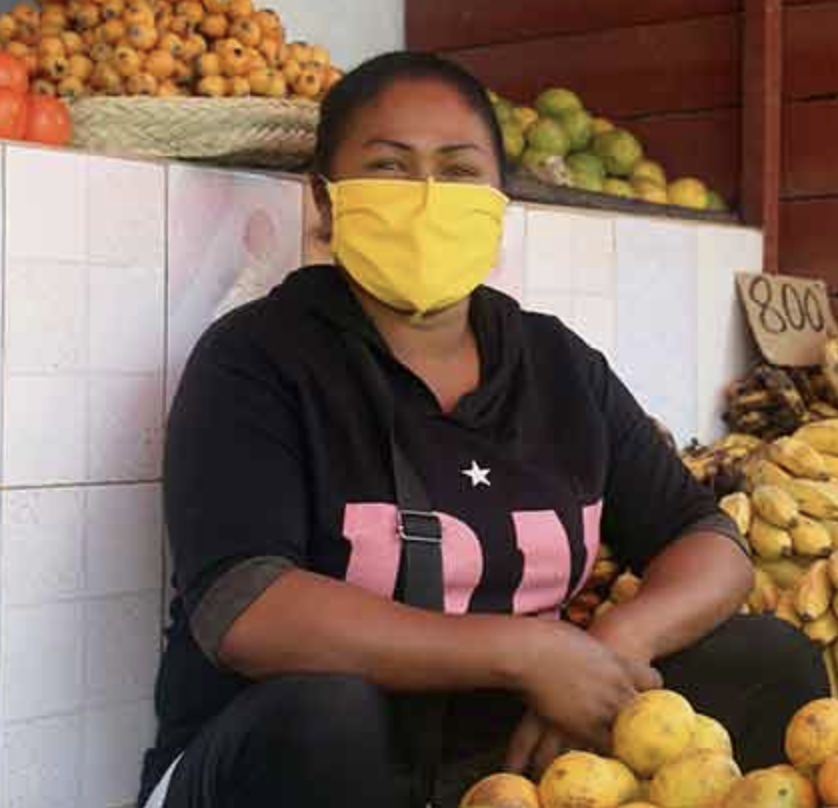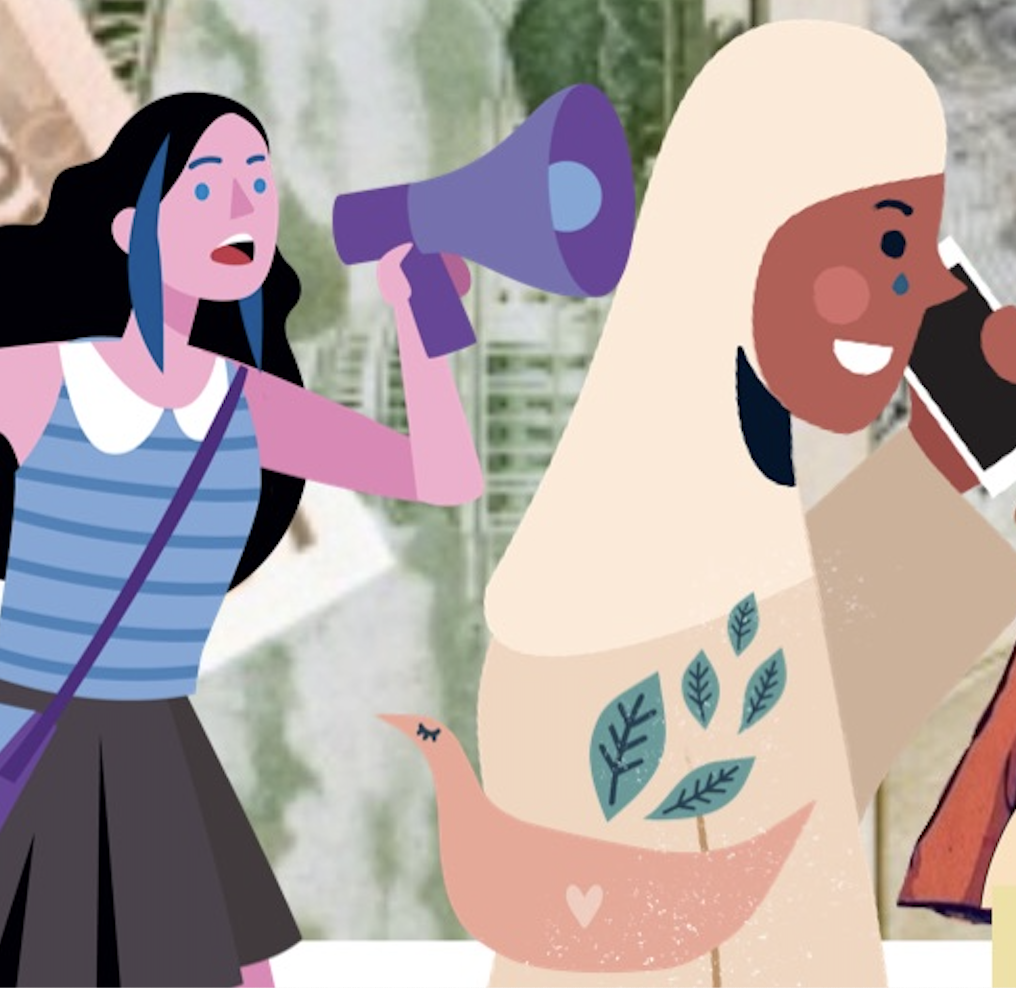August 6, 2020
COVID-19 continues to spread around the world, making particularly worrying inroads into Global South countries such as India, Brazil and South Africa. As the longevity of the pandemic is becoming clearer, lockdowns in many places are being relaxed and debates are quickly moving on to how we “reopen” our economies. It’s becoming apparent that we’ll have to continue to live with the virus until a vaccine can be developed and distributed.
The past month has seen a dizzying array of responses to COVID-19. Policy proposals are coming thick and fast, at both the national and global level. To recap a very small fraction of the big news from July: European Union leaders agreed to a € 750 billion stimulus plan, more than half going in grants to hardest-hit countries. But at the global level, the G20 meeting came and went without any concrete commitments on extending much-needed debt relief for countries in the Global South, despite civil society pressure. The South African government announced US$ 4.3 billion in emergency support from the IMF, which encouraged it to press on with “fiscal consolidation” (i.e., austerity measures) to ensure debt sustainability. Such measures are now being challenged in Brazil because of their crippling impacts on the health system. Yet its president continued to sow discord and denialism in his government’s response, despite apparently testing positive for the virus himself. Meanwhile, in the United States – which has the world’s largest economy and the highest coronavirus case-count – the expiry of temporary unemployment insurance enhancements now looms over millions of laid-off workers.
Through all this, civil society and social movements spread across different countries are strategizing and collaborating to make the voices of ordinary people heard, as well as demanding respect for their basic rights in the face of unjust and ineffective government action. Where are they focusing their efforts? What types of policy response are they calling for? What room are they finding (or creating) for human rights-centered solutions? These questions form the basis of our new series of guest blog posts, which invites our partners around the world to reflect on how their work is being shaped and shifted by COVID-19.
We’re pleased to share below different ways to engage with some of the work we’ve been doing recently. We see these activities as contributing to broader collective advocacy efforts across convergent movements – from human rights and labor rights to economic and environmental justice. We’d love to hear questions, suggestions, and provocations to help sharpen how we approach these activities. Please do get in touch with thoughts and ideas.
Sign Up: "Recovering Rights" Series
 Today, we’re launching a new brief on income support, the latest in our Recovering Rights series. It explores different policies for dealing with the unprecedented loss of livelihoods COVID-19 has provoked. How income support measures can better reach workers in the informal sector is a particular focus. Far from being a niche concern, informal workers make up the vast majority of the workforce in many countries. We’re pleased to co-publish this brief with WIEGO (Women in Informal Employment Globalizing and Organizing).
Today, we’re launching a new brief on income support, the latest in our Recovering Rights series. It explores different policies for dealing with the unprecedented loss of livelihoods COVID-19 has provoked. How income support measures can better reach workers in the informal sector is a particular focus. Far from being a niche concern, informal workers make up the vast majority of the workforce in many countries. We’re pleased to co-publish this brief with WIEGO (Women in Informal Employment Globalizing and Organizing). Recovering Rights is a series of 2-page briefs that unpack—as simply and concretely as possible—what human rights standards say about different aspects of relief and recovery measures. The briefs aim to translate human rights standards into useful tools for advocates and activists in making clear demands for economic transformation.
In the past month, we’ve looked at proposals for:
• addressing the debt crises predicted to hit many low- and middle-income countries through comprehensive debt relief and increased liquidity, in collaboration with Latindadd;
• conditions for accessing corporate bailouts and other public funds to incentivize responsible business conduct, in collaboration with the Business and Human Rights Resource Centre; and
• ensuring universal access to diagnostics, treatments, and vaccines, in collaboration with the Treatment Action Group.
Sign up here to have future Recovering Rights topics sent to your inbox as soon as they are released.
Read: Blog Posts and Factsheets

Our blog series “Confronting COVID: How Civil Society is Responding Across Countries” aims to foster solidarity across movements and borders. It does this by sharing experiences of partners and allies in responding to the economic fallout of the pandemic. What’s clear is that civil society are collaborating across silos and coming together around innovative strategies.
So far, we’ve heard from:
• Grazielle David, from Red de Justicia Fiscal de América Latina y el Caribe, sharing strategies employed by the Coalizão Direitos Valem Mais (“Rights Are Worth More Coalition”) in Brazil.
• Julieta Izcurdia, from Asociación Civil por la Igualdad y la Justicia, highlighting the need for more comprehensive tax reforms in Argentina.
• Alison Hosie, from the Scottish Human Rights Commission, stressing the importance of hearing marginalized voices in resourcing decisions.
This month, we also published a factsheet on Financing a Just Recovery in Peru, in collaboration with the Colectivo Equidad y Diversidad Cultural and the Grupo Nacional de Presupuesto Público (GNPP). The factsheet highlights key issues for Peru’s Voluntary National Review at the High-Level Political Forum on Sustainable Development, which took place virtually in July.
Watch: Videos and Webinars

• CESR’s Executive Director Ignacio Saiz spoke as part of the “Human Rights in COVID-Times” online forum, organized by Open Global Rights and University of Ottawa in honor of David Petrasek. Other speakers included three former UN High Commissioners for Human Rights. The video can be viewed here.
• Kate Donald joined a webinar organized by the Women’s Working Group on Financing for Development and the Global Alliance for Tax Justice on redistributive justice, women’s rights and taxation. The video is available here.
• With Franciscans International and the UN Human Rights Office, CESR co-organized a virtual side-event at the UN High-Level Political Forum on Sustainable Development called “Walking the talk: Exploring concrete steps towards human rights-aligned policies in a world in crisis.” Speakers included the UN Special Rapporteur on Extreme Poverty and Human Rights, and Busi Sibeko from CESR partner in South Africa, the Institute for Economic Justice. A video of the event is available here.
• Also, during the HLPF, CESR’s Mihir Mankad spoke as part of the event “Ten Years of the Human Rights to Water and Sanitation,” organized by WaterAid and others. The event featured the UN Special Rapporteur on the Right to Water, several UN Ambassadors, and representatives from numerous civil society organizations from around the world. Mihir’s remarks highlighted the need to use human rights to guide a just and green economic recovery to COVID. The event details, summary and video can be viewed here.
• Members of the Initiative for Human Rights in Fiscal Policy in Latin America (which CESR jointly coordinates) organized a webinar called “A wave of litigation for fiscal justice: opportunities for Latin America.” Participants explored how strategic litigation could be a tool for civil society to advance fiscal justice in the context of the COVID-19 crisis, discussing lessons learned from recent cases in Colombia and Brazil. The video (in Spanish) can be viewed here.